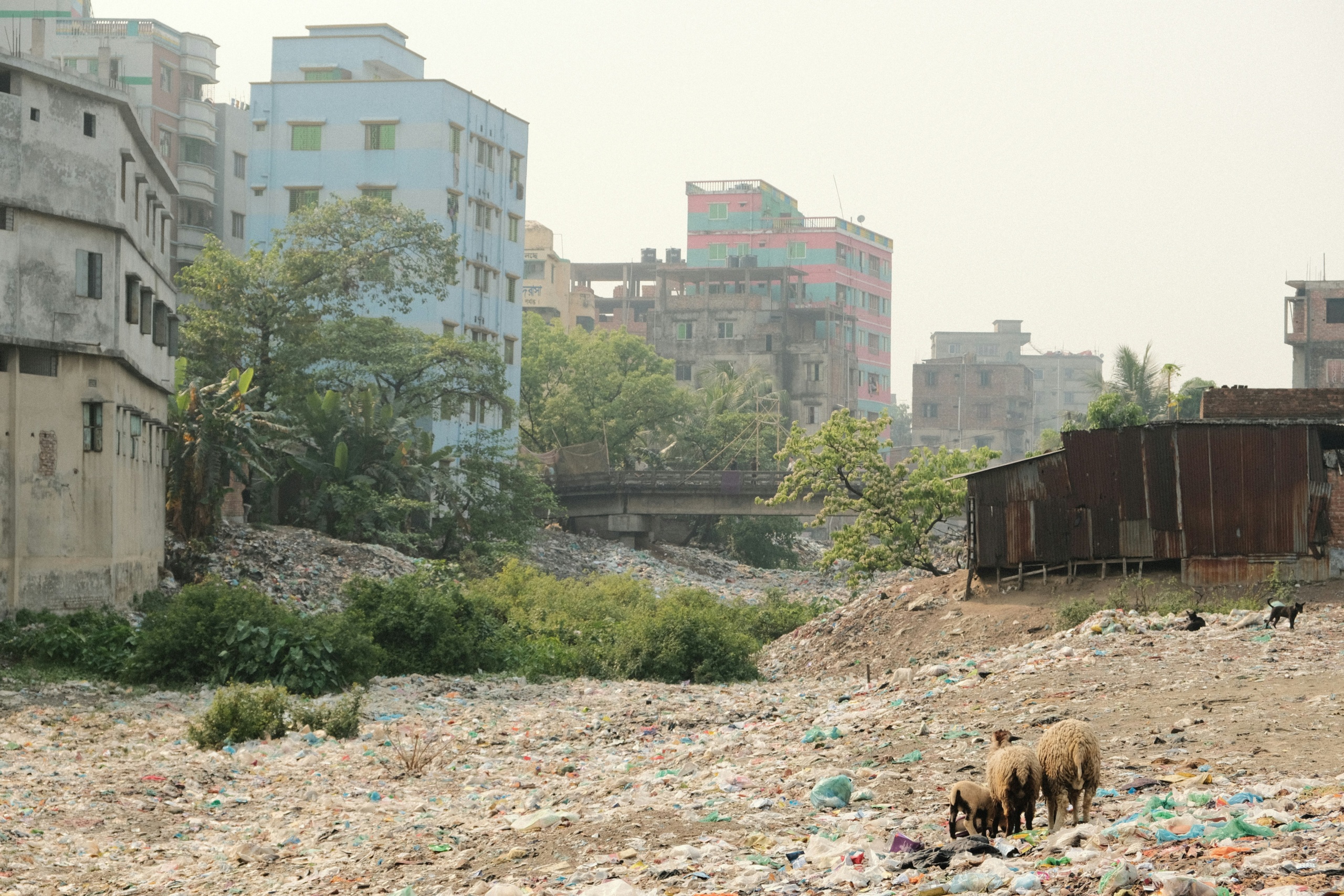The bustling city of Dhaka, Bangladesh, is home to 22.4 million people, many of whom reside in urban slum settlements, facing extreme hardships. In the heart of these challenges, Habitat is making a profound impact through the “Building Resilient Urban Slum Settlements in Dhaka” project. This initiative aims to increase community resilience by improving access to basic services, enhancing capacity for ongoing development, and fostering better coordination among urban stakeholders. One of these community members and participants of the program is Monir Sardar. This is his story:

Monir Sardar, a 55-year-old day laborer has lived in Beguntila for 17 years. His story is a poignant reminder of the struggles faced by many in Dhaka’s informal settlements. When he first arrived in the settlement Monir had nothing. His first home was a makeshift shelter made of polythene with a corrugated iron sheet roof and a mud floor. He recalls, “It was really difficult in the beginning. Our house was filled with rats, cats, and all sorts of insects. There was no security either. I feared theft every time I went out.”
Tragedy struck when Monir lost his granddaughter to insecticide poisoning as consequence of their inadequate living conditions. This heartbreaking loss has haunted him, as he struggled to provide a safe home for his family.
“My granddaughter died because I wasn’t able to provide a decent house for her. She took an insecticide we had to keep out rats. It makes me cry every time I think about it,”
Monir
Monir’s struggles became more difficult every time it rained. Rainwater seeped into their home, and fallen branches from nearby trees damaged the roof.
“A branch of a tree once fell on our roof. I couldn’t repair it for days due to shortage of money. Only I know how miserably we spent those days.”
Habitat’s work in Bangladesh
Monir was identified as one of the 47 recipients for house renovation under Habitat’s Building Resilient Urban Slum Settlements project. With the provision of construction materials such as corrugated iron sheets, wood, bamboo, and hexagonal pillars Monir’s home was transformed. “We’re in peace after Habitat [Bangladesh] provided us with materials to renovate our house. The rainwater no longer seeps inside. The overall situation of our house has improved. I am no longer ashamed of bringing guests home.”
The project has made significant strides in enhancing the living conditions and resilience of Dhaka’s urban slum settlements. Some of our key achievements just from this year include;
1. Renovation of Vulnerable Houses: Fourteen families were initially selected for house renovations. This ensured improved living conditions with better insulation and daylight management.
2. Community Infrastructure: The construction of two drains with footpaths, totaling 210 feet in length, has greatly alleviated waterlogging issues and improved the overall sanitation and mobility within the slum.
3. Capacity Building: Training sessions on health, water, sanitation, and hygiene were organized, focusing on women and children, to promote better hygiene practices and overall well-being.
4. Community Mobilisation: Community-led groups were supported through training and mobilisation, enhancing their capacity to manage ongoing development and advocate for their needs.
Despite facing significant challenges such as delays due to political unrest and the reassessment process for selecting beneficiary families, HFHB remained steadfast in their commitment to the project. The team plans to complete pending activities, including fire risk management training and the renovation of additional houses, in the upcoming months.
The work of Habitat for Humanity in Dhaka is a testament to the power of community-driven development and resilience. By addressing the immediate needs of vulnerable families and empowering communities to take charge of their development, HFHB is fostering a future of stability and self-reliance.
Monir’s story is just one of many, reflecting the transformative impact of this project and more widely of our Home Equals campaign. As Habitat continues its efforts, more families in Dhaka’s informal settlements will experience the peace and dignity of a safe and resilient home. You can support our work by pledging your voice to the Home Equals campaign.
Through strength, stability, and self-reliance, these communities are building a brighter future, one home at a time.
The “Building Resilient Urban Slum Settlements” project in Dhaka, Bangladesh receives support from the Australian Government through the Australian NGO Cooperation Program (ANCP) and is in partnership with our implementing partner Habitat for Humanity Bangladesh.



